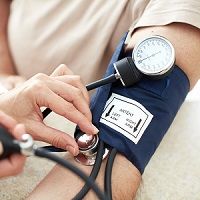Article
Sleep Apnea, Insomnia, Hypertension Combination Increases Mortality Rate
Author(s):
In a presentation during AHA, investigators present new evidence linking sleep issues with poorer outcomes for hypertension patients.

While it is unknown whether hypertension causes sleep apnea or vice versa, it is well-documented that the relationship between sleep apnea, insomnia, and hypertension causes a higher mortality rate for patients.
During the American Heart Association (AHA) 2019 Scientific Sessions in Philadelphia, Fernando Stuardo Wyss Quintana Sr., MD, Cardioclinic, discussed some new information linking this trio of comorbid conditions with a higher mortality rate for patients.
Ultimately, the relationship between sleep and mortality is inversely related, driving home the importance of sleep in an effort to stave off a number of negative conditions including hypertension.
“When you sleep less then your mortality is higher, but when you compare the treatment in hypertension with untreated patients, this is an area that we will discuss because the patients have an increase in mortality and uncontrolled hypertension,” Quintana said. “That is very important."
In the past, obstructive sleep apnea has been linked to a number of negative conditions, including poor blood pressure and resistant hypertensions. However, there has been a dearth in studies assessing its prevalence, characteristics, and association with blood pressure control in patients with resistant hypertension.
Obtrusive sleep apnea is currently a recognized cause of secondary hypertension, but using a CPAP machine could ultimately aid in lowering blood pressure levels.
Overall, there are some differences in this patient population between the 2 genders.
Quintana explained that the female sex likely has a worse prognosis than the male patient population in conditions where the comorbidities are the same.
“At the end of the day, we move to the final answer and this answer is the mortality with an insomnia patient with hypertension is of course higher than a patient free of cardiovascular disease,” he said.
Other factors that can impact these comorbid conditions include age and travel frequency.
One of the main issues in the relationship between the comorbid conditions is the time it takes for an individual to fall asleep.
“When to take more time to fall asleep you are probably going to have more issues with hypertension,” Quintana said. “[If it takes] more than 70 minutes to go to bed, and [it is a restless] sleep, you have an increase of 4 times the incidence of hypertension in our patients.
“And of course, we have 3 times more hypertensive patients who sleep less than 6 hours,” he added.
Quintana also said the mortality rate is higher for pregnany insomnia patients with hypertension, but patients with excessive daytime sleeping were completely different.
One of the areas of research currently unknown is whether sleep apnea triggers hypertension, or if patients with hypertension are desensitized to sleep apnea rates.
“I don't know the answer because I think it's a vicious circle,” Quintana said, adding that more treatments are needed to improve the conditions, particularly for younger patients.
“The clinical impact is both together, it is not an alone condition.”





